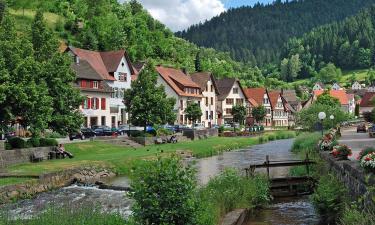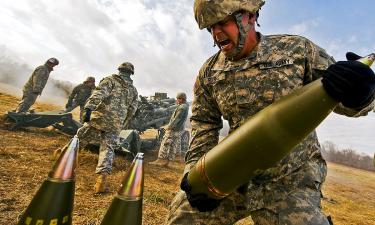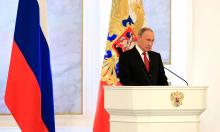Siege of radical mosque in Pakistan enters its third day
The siege of a radical mosque in Pakistan's capital entered its third day Friday after troops rocked the complex with gunfire and explosions and Islamic militants holed up inside rejected government calls for unconditional surrender.
The army appeared to be holding back from a large-scale assault. The government was keen to avoid a bloodbath that would further damage President Gen. Pervez Musharraf's embattled administration and said troops would not storm the mosque while women and children were inside.
Two dozen parents and other family members waited anxiously behind security barriers some 200 meters (yards) from the mosque, with about 10 allowed to approach the shrine's entrance.
During lulls in the fighting, some parents have approached the mosque, handed notes to those inside with the names of their children, who have then emerged.
Gunfire rang out around the mosque before dawn and again later Friday morning. Armed troops and barbed wire coils on the streets near the mosque prevented journalists from going near the scene.
There were no immediate reports of injuries and it was not possible to determine who initiated the latest bout of shooting.
Interior Minister Aftab Khan Sherpao said soldiers were trying to blast holes in the walls of the fortress-like compound of the mosque and an adjoining seminary for girls, seeking to wear down the defenders' resolve and force a surrender without a bloody battle.
But the mosque's deputy leader, Abdul Rashid Ghazi, remained inside with die-hard followers and rejected the government's call for an unconditional surrender.
Ghazi told a local television station that he and his followers were willing to lay down their arms and end the stand-off, but on condition that he and his followers are not arrested and that he be allowed time to move his ailing mother and sister-in-law to another location outside the mosque.
Deputy Information Minister Tariq Azim said some of the more than 1,100 supporters who had fled the mosque and madrassa told officials that Ghazi had retreated to a cellar along with 20 female "hostages" and that the holdouts had "large quantities of automatic weapons." Officials say they are also armed with hand grenades, explosives and homemade gasoline bombs.
Azim said there would be no more negotiations.
"Enough time has already been wasted. It has to be total, unconditional surrender," he said, but added: "As long as there are women and children inside, I don't think that we will go in."
Soldiers backed by armored vehicles and helicopters surrounded the Lal Masjid, or Red Mosque, before dawn Wednesday, a day after the start of clashes between security forces and radical followers of the mosque that have killed at least 19 people.
The violence brought to a head a six-month standoff between Pakistan's U.S.-backed government and its top cleric, Maulana Abdul Aziz, who challenged Musharraf with a drive to impose Taliban-style Islamic law in Islamabad.
Aziz, who is Ghazi's brother, was caught Wednesday as he tried to escape the complex disguised in a woman's top-to-toe burqa and high-heeled shoes.
He said on state television that as many as 700 women and about 250 men remained inside the complex, armed with more than a dozen AK-47 assault rifles.
"If they can get out quietly they should go, or they can surrender if they want to," Aziz said. "I saw after coming out that the siege is very intense. ... Our companions will not be able to stay for long."
Several explosions were heard amid intense gunfire before dusk Thursday, sending a plume of black smoke into the sky.
A leader inside the mosque accused troops of firing several mortar rounds that killed 27 female students.
Sherpao insisted no mortars were fired and said the alleged casualties were "just their claims."
The shooting later eased and the smoke cleared.
Subscribe to Pravda.Ru Telegram channel, Facebook, RSS!





